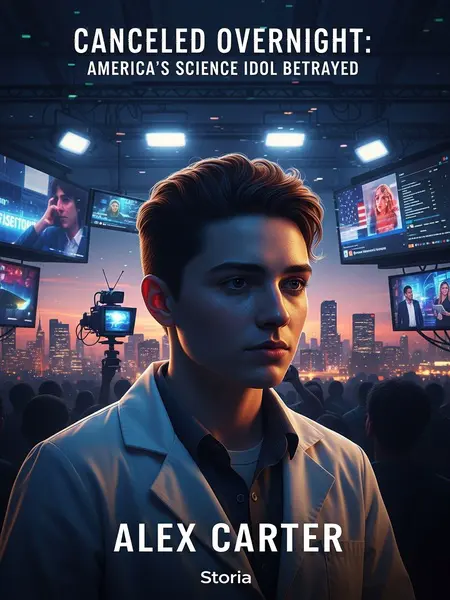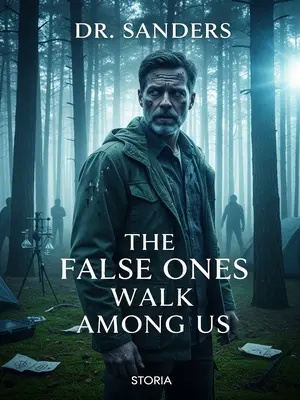Chapter 2: A Comment Sparks a Firestorm
Let’s rewind to the last day of 2020.
A cold, gray Thursday in December—one of those days where it feels like the world is holding its breath, waiting for something new. For "BrightMind," it was time for their annual wrap-up.
On December 31, 2020, "BrightMind" released the video "How Much Did 'BrightMind' Earn in 2020."
The upload was classic end-of-year fare: behind-the-scenes glimpses, charts, and some self-deprecating jokes about spending too much on takeout. Fans ate it up, eager for a peek behind the curtain.
Since its founding in 2018, Alex Carter and his team had made this annual summary a tradition.
It was like a family ritual—one that gave fans a sense of belonging, as if they were part of the ride. Comments from longtime followers poured in, each year marking the project’s growing legacy.
In 2020, "BrightMind" spent a total of $2.5 million, with $1.4 million going to labor costs.
The numbers were staggering for a YouTube channel. People joked about "BrightMind" single-handedly keeping DoorDash in business. But the transparency earned respect.
Within just one year, the team expanded from 20 to 55 people.
The scale-up was lightning-fast, like a tech startup in overdrive. Job listings went up constantly, and old fans sometimes recognized new names in the credits.
Revenue for 2020 tripled compared to 2019.
Everyone marveled at the numbers—some cheered, some got suspicious. But the consensus was clear: "BrightMind" was the new gold standard for science communication.
The speed of their growth was nothing short of meteoric.
It felt like they’d gone from zero to sixty overnight, and people both admired and envied the hustle. "America loves a winner," someone quipped in the comments.
And the expansion wasn’t slowing down.
BrightMind’s ambition seemed boundless. Every month, there was a new announcement, a new product, a new collaboration teased on Twitter.
After all, new projects like "Basic Operations" and "Drying Factory" had just launched.
Fans speculated about what was coming next—maybe a TV show? Maybe an app? The anticipation grew with every cryptic post.
In the new year, they still needed to recruit more staff and tackle bigger projects.
Alex joked on Instagram about needing a bigger coffee pot for the ever-growing team. The company’s “careers” page overflowed with listings, drawing talent from across the country.
Alex Carter had already leased additional office space on the same floor, and the company could now accommodate up to 150 people.
Moving day meant pizza boxes stacked on the conference table and a playlist of classic rock blaring from someone’s Bluetooth speaker. Moving day was documented on TikTok, complete with cardboard boxes, pizza for the crew, and an “official” ribbon-cutting with oversized scissors. Spirits were high.
In the video’s comment section, fans left congratulatory messages, celebrating "BrightMind’s" continued success.
Some shared fan art, others posted inside jokes only true followers would get. A few even claimed they’d been inspired to major in science because of Alex.
It felt like watching their own child achieve greatness—a source of heartfelt pride.
For longtime viewers, every milestone felt personal. They’d seen the channel grow from a scrappy side project to a juggernaut, and now they were along for the ride.
But just as "BrightMind’s" fans were reveling in joy, a dissenter appeared.
No internet moment goes unchallenged. Amid the flood of praise, a single, sharp comment cut through the noise.
A YouTube creator named "Sally Newton" left a comment:
"After seeing this today, I quietly swallowed half a bottle of Pepto-Bismol."
It was the kind of snark that only another creator would dare. Subtle, but loaded—a dig that could only come from someone who knew the game.
Pepto-Bismol is commonly used to treat nausea.
The joke didn’t need an explainer, but for those who missed it, the message was clear: Sally was sick to her stomach over the whole thing.
With this single, subtle jab, she managed to insult "BrightMind."
It was a masterstroke of shade—one that drew attention precisely because it was so brief and pointed.
This one comment was like poking a hornet’s nest.
The replies racked up in minutes—hundreds, then thousands. It was the internet equivalent of throwing gasoline on a campfire.
Seeing their beloved creator under attack, "BrightMind’s" fans couldn’t sit still and fired back at Sally:
Comments poured in, sharp and defensive. The tone turned from celebratory to combative in the blink of an eye.
"You’re just jealous that others are making money."
"Trying to piggyback on their fame? Who do you think you are—‘BrightMind’ isn’t someone you can just latch onto!"
Just because you put a cape on a dog doesn’t make it Superman—who are you trying to fool?
Even the metaphors got creative. Reddit threads compared Sally’s attempt to hitch a ride on BrightMind’s coattails to duct-taping a squirrel to a rocket and calling it NASA.
On YouTube, "BrightMind" was a major force, boasting nearly 3 million fans.
They ruled the trending page, and for many, BrightMind was the only science creator that mattered. That kind of power came with an army of fiercely loyal supporters.
If each fan left a nasty comment, Sally would be buried in an instant.
The numbers game was brutal. Even a fraction of BrightMind’s fans mobilizing could drown out a smaller creator in a storm of downvotes and callouts.
Meanwhile, Sally’s account had a mere 80,000 followers—not even a drop in the bucket.
To most, she was a blip—a footnote in the digital hierarchy. But she was about to prove that being outnumbered didn’t mean being outgunned.
And so began an internet showdown: an 80,000-follower blogger versus a 3 million-follower giant.
The digital drama spread across platforms: Twitter threads, Discord chatrooms, even Facebook groups joined in. Everyone picked a side.
80,000 vs. 3 million.
It became a meme overnight. Reddit lit up with photoshopped images—Sally riding a David-sized slingshot, BrightMind’s logo looming like Goliath. People joked about David vs. Goliath, but with memes and GIFs instead of slingshots.
Sally, however, was no pushover. Faced with a barrage of accusations and insults, she stood her ground.
She posted calmly, replied to criticism with humor, and never once took down her comment. It was a masterclass in digital resilience.
Some fans laughed it off, but others felt the sting—a sense that their hero had just been called out in front of the whole internet.
On January 24, 2021, she released a video titled "Filling in the Knowledge Gaps Left by 'BrightMind.'"
The title alone was provocative—an open challenge to the king of the hill. Notifications pinged across the country as subscribers rushed to see what she’d say.
With this video, she directly challenged "BrightMind’s" fans.
She didn’t mince words. The tone was measured but fearless—a callout, not a takedown.
In it, Sally pointed out the "little mistakes" in "BrightMind’s" previous videos, laying out facts and logic.
She brought receipts: screenshots, citations, and time stamps. The video was tight, focused, and impossible to ignore.
For example, in "Why Is America’s Table Salt Only Monopolized by the State," "BrightMind" stated:
"Because of monopoly operations, the country can reap nearly tenfold profits from table salt every year."
But they failed to mention that America’s table salt is cheap, high-quality, and can be supplied steadily even during disasters, with no price hikes.
Sally walked through the economic realities—showing that the real story was more nuanced than BrightMind let on. Her argument hit home, especially with older viewers who remembered price controls during tough times.
In "How to Scientifically Create Rainfall," the only example "BrightMind" gave was the U.S. firing weather rockets in advance to prevent rain during the Olympics—suggesting that America’s artificial rainfall projects were just for show and essentially useless.
She pointed out better examples, like cloud seeding during California’s droughts, or the agricultural uses in the Midwest. Her tone stayed cool: “Look, I’m not saying BrightMind is evil. But facts are facts.”
In "How to Divorce Scientifically," "BrightMind" had maliciously edited a video of legal science blogger "Professor Logan Talks Law."
Here, Sally highlighted the importance of proper citation and context. She called out the edit as misleading, arguing that science communication demanded higher standards.
Even after viewers pointed out the error in the comments, "BrightMind" never responded.
The silence didn’t sit well. People started wondering if BrightMind was just dodging criticism, or worse, hiding something.
It wasn’t until a year later, when "Professor Logan Talks Law" joined YouTube, that they finally apologized.
The apology came off as half-hearted and way too late. By then, the damage was done—people had already chosen sides.
They even tried to piggyback off Professor Logan—it was like duct-taping feathers to a lamppost and calling it an eagle.
The phrase became a running joke online. Memes with lampposts wearing eagle masks circulated on Twitter, poking fun at BrightMind’s failed attempt to save face.
At the end of her video, Sally summed up:
"BrightMind is clearly pushing their own agenda, harboring ulterior motives, and their stance is biased."
The words were damning, but spoken in a way that felt almost clinical—like a surgeon exposing the problem without ever raising her voice.
As soon as the video was released, it went viral, and the online debate exploded onto trending lists.
YouTube’s trending page, Twitter, and even TikTok lit up. Reaction videos, think-pieces, and hot takes flooded the digital airwaves. It felt like everyone had an opinion.
Many top influencers with millions of followers reposted the video.
It wasn’t long before the story crossed over into mainstream news. CNN and Fox both ran segments, and even late-night comedians took shots at the controversy.
Comment sections across major platforms erupted in heated debate.
The comment wars became legendary: paragraphs of analysis, one-liners, even poetry battles. Subreddits popped up dedicated to dissecting every new twist.
Fans of "BrightMind" argued that Sally was overanalyzing and just a clown trying to ride the wave of popularity.
Some accused her of sour grapes, others insisted she was just jealous of BrightMind’s success. The language got heated, but the debate never let up.
Sally’s supporters claimed that "BrightMind’s" videos were selective and deliberately misleading.
To them, Sally was a whistleblower, exposing the cracks in a glossy facade. They saw her as a champion for honest, nuanced science.
"BrightMind’s" fans countered that, out of over a hundred videos, Sally had cherry-picked a few small mistakes, ignoring "BrightMind’s" huge contributions to science popularization.
They posted compilations of BrightMind’s best moments, and argued that no creator could be perfect—not with that much output.
Sally’s supporters replied that sneaking personal agendas into science videos is as dangerous as poisonous textbooks.
They shared horror stories about the dangers of misinformation, arguing that small errors could have big consequences—especially when millions of people were listening.
Eventually, both sides started calling each other "one-track minds," meaning someone who is stubbornly one-sided.
The phrase caught on, and soon became a meme in its own right. But underneath the memes and hashtags, a bigger question was brewing—who gets to decide what America believes?













